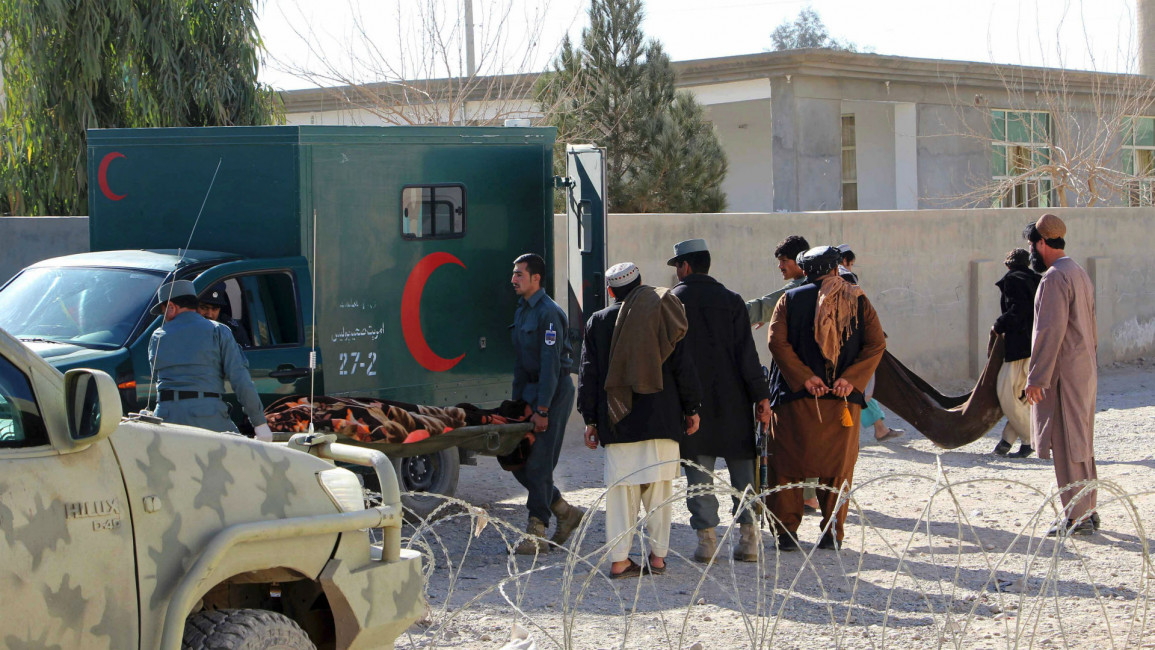Day of carnage after wave of Afghan blasts
Ambassador Juma Mohammed Abdullah al-Kaabi and other Emirati diplomats were reported among the wounded by the UAE's foreign ministry after a bomb was planted in a sofa in the compound.
At least 11 people were reported dead in the attack in the southern province of Kandahar according to Afghan news.
Hours earlier, at least 30 people were killed when two bombs went off outside an annex close to the Afghan parliament.
A further seven people were killed when a suicide bomber detonated explosives in Lashkar Gah, the capital of the troubled Helmand Province.
The bomb blasts are believed to be part of a renewed offensive against the Afghan government by the Taliban, al-Qaeda and Islamic State group militants.
Winter usually spells a slump in attacks by the Taliban - particularly in the capital Kabul - but the new bombings have renewed fears of an empowered and ruthless insurgency.
UAE ambassador
The bombing at the Kandahar governor's compound suggested a highly organised attack when he was meeting a high-profile UAE delegation.
Planted in a sofa, the explosion killed between 11 and a dozen people, with the flames injuring Kaabi and other diplomats.
There has been no claim of responsibility by any militant groups but the Taliban said they planted the bombs outside the parliament in Kabul.
The first blast in the capital targeted employees leaving the parliamentary compound in a mini bus.
|
|
A second explosion appeared aimed at police and medical staff rescuing survivors at the scene. Four police officers were killed in the second bombing.
The Taliban said they were responsible for the attack but claimed the victims were Afghan intelligence officers.
Medical staff told AFP that they expected the death toll to rise with many of the injured in a serious condition.
Insurgency
Human rights groups have condemned the bloody assaults.
"The deaths of scores of civilians in today's Kabul bomb attacks indicates that the Taliban are pressing ahead with a gruesome campaign of violence that makes no effort to spare civilian lives," Amnesty International said in a statement.
"An immediate, impartial and independent investigation must be carried out to secure justice for the victims and their families."
Efforts to stop the violence have failed, and the emergence of the radical Islamic State group have further hampered hopes for peace between the government and the Taliban.
Perhaps in anticipation of more bloody fighting, NATO announced reinforcements would be sent to the country.
Around 300 US marines will return Afghanistan to train Afghan troops fighting the insurgency, while there has been a spike in NATO bombings in the country.
Yet the emergence of extremist factions among Afghan militancy will make efforts for a peaceful settlement even more challenging.


